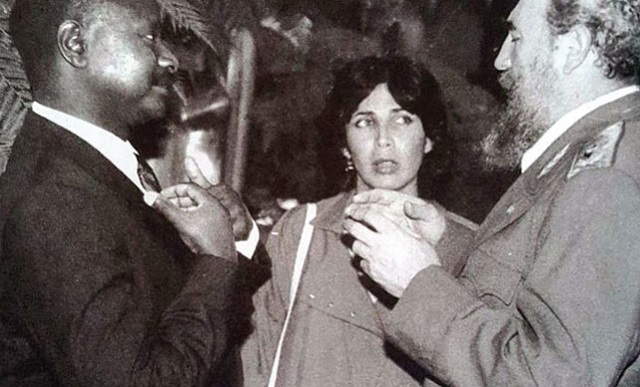
Understanding Cuban doctors
But Museveni is arming himself in case that fails to avert strikes. He is bringing in mercenary doctors from Cuba. Will the government’s strategy work?
Part of the reason it might work is that NOTU and Ugandan medical workers appear not to understand the force they are confronting.
Take the claim by the NOTU Secretary General, Peter Christopher Werikhe, that the government is providing the full story by claiming that the Cuban doctors are to earn Shs5 million per month.
“Those Cuban doctors are going to live in fully furnished houses,” Werikhe told journalists in Kampala, “They are going to drive luxury four-wheel Prados’.
Werikhe might be right and the doctors might enjoy these perks. But they will not care if they do not. In reality, Cuban health workers are not thinking about Prados when they think about their work. Most of them do not have or dream of having a car in Cuba. A few lucky ones drive cars manufactured in the 1950s. Most earn a meager average monthly wage of US$20 (Approx. Shs75,000) and take on second jobs to survive. The US $1500, the government is offering them is a fortune for them – even after the
Cuban government takes its cut.
When some of them worked to help establish the Mbarara University of Science and Technology (MUST), where ironically some of the doctors now fighting them studied, they were earning US$300 and the Cuban government was chopping off US$100 per month. But that was not problem for the Cuban lecturers. As internacionalistas, they are usually contented with contracts that offer housing and food.
As internacionalitas, the health workers know they will be here for only two years, and will make the most of it. Some might even engage in some petty businesses.
Many Ugandans will recall the Cuban boxing coach, Jimenez Lazaros, who guided Ugandan national team between 1989 and 1992. Some of Uganda’s best boxers; Fred Muteweta, Justin Juuko, Geoffrey Nyakana, Godfrey Wakabu, Abdu `Sabata’ Kaddu, Davis Lusimbo and Alphonse Mubiru won continental and Commonwealth medals under him. Another Cuban, Rodolfo Gonzalez Jimenez, won a Shs90 million two-year contract to coach the Bombers. Hiring Gonzalez was heavily fought.
So the Cuban health workers will accomplish their mission with or without the support of their Uganda colleagues. They have been fought in many countries where they operate. Even medics in neighboring Kenya are opposing their coming.
To understand this Werikhe and others need to read a 2003 book titled ` Health Travels: Cuban Health (care) On and Off the Island’ by Nancy Burke.
The book contains some very interesting stories about the role and experiences of Cuban doctors in Uganda.
It, for example, tells the story of how Museveni had to appeal directly to then-Cuban President Fidel Castrol for a Cuban doctor then in Mbarara to be released to work in Uganda after he had saved the life of a high ranking military officer.
The book details how Cubans played an important role in fighting HIV/AIDS in Uganda in the early years. Museveni reportedly learned of the gravity of the HIV/AIDS situation in Uganda from then-Cuban leader, Fidel Castrol at a Non-Aligned Movement meeting in 1986.
 The Independent Uganda: You get the Truth we Pay the Price
The Independent Uganda: You get the Truth we Pay the Price





